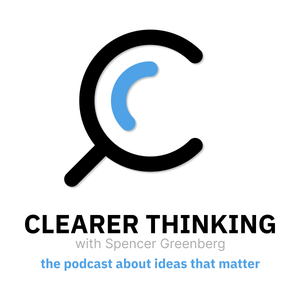
Clearer Thinking with Spencer Greenberg
Spencer Greenberg
Clearer Thinking is a podcast about ideas that truly matter. If you enjoy learning about powerful, practical concepts and frameworks, wish you had more deep, intellectual conversations in your life, or are looking for non-BS self-improvement, then we think you'll love this podcast! Each week we invite a brilliant guest to bring four important ideas to discuss for an in-depth conversation. Topics include psychology, society, behavior change, philosophy, science, artificial intelligence, math, economics, self-help, mental health, and technology. We focus on ideas that can be applied right now to make your life better or to help you better understand yourself and the world, aiming to teach you the best mental tools to enhance your learning, self-improvement efforts, and decision-making. • We take on important, thorny questions like: • What's the best way to help a friend or loved one going through a difficult time? How can we make our worldviews more accurate? How can we hone the accuracy of our thinking? What are the advantages of using our "gut" to make decisions? And when should we expect careful, analytical reflection to be more effective? Why do societies sometimes collapse? And what can we do to reduce the chance that ours collapses? Why is the world today so much worse than it could be? And what can we do to make it better? What are the good and bad parts of tradition? And are there more meaningful and ethical ways of carrying out important rituals, such as honoring the dead? How can we move beyond zero-sum, adversarial negotiations and create more positive-sum interactions?
- 1 hour 36 minutesA conversation about Borderline Personality Disorder (with Kayla Spicer)
Read the full transcript here.
What is Borderline Personality Disorder (BPD)? Why is it so stigmatized relative to other mental health issues? What does it mean to be the "favorite person" of someone with BPD? Can people with BPD have multiple favorite persons, or no favorite person at all? What is "splitting"? Why are people with BPD more prone to engage in risky, reckless, or impulsive behaviors? How might BPD overlap with the "dark triad" personality traits (i.e., machiavellianism, narcissism, and psychopathy)? Is BPD more common among women? How should we treat people who may not meet the threshold for a particular mental illness diagnosis but who nevertheless exhibit some of the symptoms of that illness? How can partners form good relationships with people suffering from BPD? How can you help a person suffering from BPD in a moment of crisis? Why is Dialectical Behavior Therapy (DBT) the best treatment option for BPD? What does DBT teach? What are some DBT techniques that work especially well for people with BPD? What is "quiet" BPD? What is "emotional reasoning"? What should you do if you think you might have BPD?
Kayla Spicer is a Registered Psychotherapist in Ontario and an online educator specializing in Borderline Personality Disorder (BPD). With a Master's in Counseling Psychology, she combines clinical expertise and lived experience to create accessible learning resources for individuals, particularly women, who struggle with high sensitivity, perfectionism, and emotion regulation challenges. Through her YouTube channel and other online platforms, Kayla offers evidence-based strategies, practical tools, and empowering advice to guide people toward self-compassion and long-term well-being. To learn more, visit the YouTube channel called On the Line.
Staff
- Spencer Greenberg — Host / Director
- Josh Castle — Producer
- Ryan Kessler — Audio Engineer
- Uri Bram — Factotum
- WeAmplify — Transcriptionists
Music
Affiliates
[Read more]22 January 2025, 11:59 pm - 1 hour 27 minutesCould the placebo effect be bullshit? (with Literal Banana)
Read the full transcript here.
Is the placebo effect bullshit? Are "open-label" placebos just as effective as "closed-label" placebos? How do placebos differ from dummies? Is the placebo effect just a kind of scientific-sounding "woo"? How does social priming differ from word priming? Why is it important in research to have both placebo and no-treatment groups? What is the Hawthorne effect? What is the John Henry effect? When is it useful to express effect sizes using Cohen's d? If there's not a placebo effect, then what's really going on in cases where it seems like there is one? Is meditation a kind of placebo treatment for mental states? How can researchers believe that people's mental states are important and yet that the placebo effect doesn't exist? What is stress-induced analgesia? Does the nocebo effect (if it exists) provide reason to think that the placebo effect exists? Where do psychosomatic effects fit into this picture? What have animal studies found about the placebo effect?
Literal Banana is literally a banana who became interested in human social science through trying to live among them. After escaping from a high-tech produce delivery start-up, she now lives among humans and attempts to understand them through their own sciences of themselves. Follow Literal Banana on Twitter at @literalbanana.
Further reading
- "A Case Against the Placebo Effect", by Literal Banana
- "Placebo interventions for all clinical conditions", by Asbjørn Hróbjartsson and Peter Gøtzsche
- "Tears", by Kevin Simler
Staff
- Spencer Greenberg — Host / Director
- Josh Castle — Producer
- Ryan Kessler — Audio Engineer
- Uri Bram — Factotum
- WeAmplify — Transcriptionists
Music
Affiliates
[Read more]15 January 2025, 11:59 pm - 1 hour 7 minutesMaking better decisions by thinking like an artist (with Elspeth Kirkman)
Read the full transcript here.
What kinds of things really distort our ability to think clearly when making decisions? What is "psychological distance"? What is construal level theory? How can we intentionally increase or decrease psychological distance for ourselves or others who are making decisions? What are "decisionscapes"? When giving toddlers choices, we often artificially limit the number of available options to help smooth out the decision process and avoid decision paralysis. When might the imposition of this kind of artificial limitation be useful for adult decision-makers? What should we do with the productivity gains we've reaped (and will presumably continue to reap) from AI? Is it possible to show someone that you really care about them without making any kind of sacrifice? What has AI done to the value of art? Which individuals and companies currently own the means of digital production? How can we break free from algorithms that drive engagement by triggering negative emotions and promoting conflict? Is survivorship bias the ultimate cognitive bias? What are some lesser-known or lesser-used framing devices for making better decisions?
Elspeth Kirkman is the Chief Programmes Officer at Nesta, overseeing missions in early childhood development, obesity reduction, and net-zero emissions. She previously held senior roles at BIT, including establishing the company's North American office. Elspeth is the author of two books: Behavioral Insights (2020), co-written with Michael Hallsworth, and Decisionscape: How Thinking Like an Artist Can Improve Our Decision-Making (2024). Follow her on TikTok at @Karminker or on Bluesky at @karminker.bsky.social.
Further reading
Staff
- Spencer Greenberg — Host / Director
- Josh Castle — Producer
- Ryan Kessler — Audio Engineer
- Uri Bram — Factotum
- WeAmplify — Transcriptionists
Music
Affiliates
[Read more]8 January 2025, 11:59 pm - 1 hour 28 minutesAre the culture wars harming science? (with Cremieux)
Read the full transcript here.
Which of the world's hardest problems can be solved merely by gathering more data? Why are social problems harder to solve than biological problems? How should power between business owners and unions be balanced? Why do people so often misinterpret research results — sometimes even to the point of concluding exactly the opposite of what the results show? What heuristics should people use when reading research papers? How are culture wars affecting the reliability of research? Should there be any limits on what can be researched and published? When might left-leaning researchers actually end up causing harm to the groups whose causes they're trying to defend? How much does it matter that we know what sorts of traits are heritable? How important is IQ for predicting life outcomes? In what kinds of situations is skill more important than IQ, and vice versa? Is there value in knowing your own IQ?
Learn more about Cremieux at their website, cremieux.xyz.
Further reading
Staff
- Spencer Greenberg — Host / Director
- Josh Castle — Producer
- Ryan Kessler — Audio Engineer
- Uri Bram — Factotum
- WeAmplify — Transcriptionists
Music
Affiliates
[Read more]6 January 2025, 11:59 pm - 1 hour 18 minutesHow can you learn more efficiently? (with Scott Young)
Read the full transcript here.
What do schools do well and not so well? In what contexts is memorization most effective? What's the value in teaching something that will probably be forgotten by most students after graduation? How should educators balance time spent on building skills versus acquiring knowledge? Why do students so often fail to apply the skills learned in school (e.g., fractions, solving for unknown quantities, etc.) to problems encountered in everyday life? What is "transfer of learning"? What is educational "directness"? How can we learn languages more efficiently? How does review compare to other forms of study or exam prep? How can we forget less of what we read? Is it really true that "practice makes perfect"? How can we best set ourselves up emotionally for optimal learning? What should people do when they hit plateaus in their learning?
Scott H. Young is the Wall Street Journal bestselling author of Ultralearning, a podcast host, computer programmer, and an avid reader. Since 2006, he has published weekly essays to help people learn and think better. His work has been featured in the New York Times, Pocket, and Business Insider, on the BBC, and at TEDx among other outlets. He doesn't promise to have all the answers, just a place to start. He lives in Vancouver, Canada. Follow him on Twitter at @scotthyoung, email him at [email protected], or read his blog posts on his website, scotthyoung.com/blog.
Further reading
Staff
- Spencer Greenberg — Host / Director
- Josh Castle — Producer
- Ryan Kessler — Audio Engineer
- Uri Bram — Factotum
- WeAmplify — Transcriptionists
Music
Affiliates
[Read more]25 December 2024, 11:59 pm - 1 hour 31 minutesA conversation with a narcissist (with Jacob Skidmore)
Read the full transcript here.
Are narcissists born with narcissism? What are the core components of narcissism? To what extent do narcissists have their own personality that isn't shaped by what others think of them? Are narcissists overly confident or overly insecure? How are grandiosity and vulnerability related? Why might narcissists be offended by compliments? Would narcissists relinquish their narcissism if given the opportunity? Do most narcissists know that they suffer from Narcissistic Personality Disorder (NPD)? How long of a questionnaire is needed to diagnose NPD? In what professions are narcissists overly represented? How should people deal with the narcissists in their lives? How can narcissists be successfully integrated into society? What can people do if they think they might be a narcissist?
Jacob Skidmore, also known as "The Nameless Narcissist", is a social media personality who has made the effort to explain his diagnosis, Narcissistic Personality Disorder, from his perspective. Following being diagnosed with NPD, he craved to understand himself and others, and he's taken to using his platforms to describe his realizations. It's taken him as far as to speak at international conferences and universities. His reflections can be found on most social media, primarily YouTube and TikTok, under the name "The Nameless Narcissist".
Further reading
- Pathological Narcissism Inventory (online free assessment)
- Disarming the Narcissist: Surviving and Thriving with the Self-Absorbed, by Wendy T. Behary
- Unmasking Narcissism: A Guide to Understanding the Narcissist in Your Life, by Mark Ettensohn
Staff
- Spencer Greenberg — Host / Director
- Josh Castle — Producer
- Ryan Kessler — Audio Engineer
- Uri Bram — Factotum
- WeAmplify — Transcriptionists
Music
Affiliates
[Read more]18 December 2024, 11:59 pm - 1 hour 11 minutesWhat effects does guaranteed income have on U.S. citizens? (with Eva Vivalt)
Read the full transcript here.
What have we learned about UBI from recent, large-scale studies? What factors contribute to differential attrition in (especially long-term) studies? How much does it cost to run large UBI studies? Where else in the world have major UBI studies been run? What's the difference between "guaranteed income" and UBI? How do people in cash transfer studies tend to spend their money? Should restrictions be placed on what people can spend their study money on? How long does it take to see various effects of UBI or guaranteed income on a large scale? How does guaranteed income affect the nature of work in recipients' lives? How does guaranteed income affect a person's net worth in the long run? What are the effects on well-being? How does topical knowledge affect prediction accuracy in a given area? How good are subject-matter experts at making predictions about the outcome or utility of a study? How can such predictions in aggregate be used to shape future research? To what extent should reseachers express uncertainty when making proposals to policy-makers? How much of an effect does the publishing of academic papers have on the world? What kind of person should try to build a career in academia? How can non-experts assess the rigor and significance of academic papers?
Eva Vivalt is an Assistant Professor in the Department of Economics at the University of Toronto. Dr. Vivalt's main research interests are in investigating stumbling blocks to evidence-based policy decisions, including methodological issues, how evidence is interpreted, and the use of forecasting. Dr. Vivalt is also a principal investigator on three guaranteed income RCTs and a co-founder of the Social Science Prediction Platform, a platform to coordinate the collection of forecasts of research results. Find out more about her on her website, evavivalt.com.
Further reading
Staff
- Spencer Greenberg — Host / Director
- Josh Castle — Producer
- Ryan Kessler — Audio Engineer
- Uri Bram — Factotum
- WeAmplify — Transcriptionists
Music
Affiliates
[Read more]11 December 2024, 11:59 pm - 1 hour 4 minutesHuman evolution and AI evolution (with Dwarkesh Patel)
Read the full transcript here.
What interesting things can we learn by studying pre-humans? How many different species of pre-humans were there? Why is there only a single species of human now? If pre-human species wiped each other out for various reasons, why might the ancestors of chimps and bonobos (who are very closely related to humans) have been spared? What roles did language, racism / speciesism, and disease likely play in the shaping of the human evolutionary tree? How is AI development like and unlike human development? What can we learn about AI development from human development and vice versa? What is an "AI firm"? What are some advantages AI firms would have over human companies in addition to intelligence and speed? How can we learn faster and retain knowledge better? Is writing the best way to learn something deeply?
Dwarkesh Patel is the host of the Dwarkesh Podcast. Listen to his podcast, read his writings on Substack, or learn more about him at his website, dwarkeshpatel.com.
Staff
- Spencer Greenberg — Host / Director
- Josh Castle — Producer
- Ryan Kessler — Audio Engineer
- Uri Bram — Factotum
- WeAmplify — Transcriptionists
Music
Affiliates
[Read more]4 December 2024, 11:59 pm - 1 hour 20 minutesShould sex work be a crime? (with Kaytlin Bailey)
Read the full transcript here.
Why are sex workers treated so badly in the US? What effects do licensing requirements have on sex workers and their customers? How do sex worker rights connect with privacy rights more broadly? In what philosophical principles ought sex worker rights (and their customers' rights) to be grounded? How do sex work laws affect people who aren't sex workers? Is "whore-phobia" the root of all misogyny? Is misogyny built into human nature, or is it learned? How does testicle size affect evolutionary fitness? Must religions necessarily have rules and norms about sexual purity? How do the Abrahamic religions teach sexual purity, and to whom are these lessons taught? Do sex workers have more or fewer STIs than the average "civilian"? If Alice is a sex worker and has had sex with 20 partners, and Bridget is not a sex worker and has also had sex with 20 partners, then which of them is considered to be the more promiscuous of the two? What sorts of tools and processes do sex workers use to screen clients? Are sex workers harmed (psychologically, physically, etc.) more through sex work than the average person is harmed through their work? How common are pimps nowadays? What are the various legal models for sex work around the world? Why does there seem to be a strong connection between sex work and illegal drug use? Why are women more opposed than men to the legalization of sex work? Does legal sex work potentially encourage the objectification of women and thus increase misogyny?
Kaytlin Bailey is the founder and Executive Director of Old Pros, a nonprofit focused on changing the status of sex workers in society. She hosts The Oldest Profession Podcast and is currently touring her award-winning one-woman show Whore's Eye View, a comedic mad dash through 10,000 years of history from a sex worker's perspective. Old Pros sends out a weekly newsletter with a round up of sex worker rights news from around the world, upcoming live events, and new episodes of The Oldest Profession Podcast. Subscribe to that newsletter at oldprosonline.org, or interact on Twitter / X at @oldprosonline. To reach Kaytlin directly, send her an email at [email protected] or message her on Twitter / X at @kaytlinbailey. To find upcoming tour dates for Whore's Eye View, visit whoreseyeview.com.
Further reading
Staff
- Spencer Greenberg — Host / Director
- Josh Castle — Producer
- Ryan Kessler — Audio Engineer
- Uri Bram — Factotum
- WeAmplify — Transcriptionists
Music
Affiliates
[Read more]27 November 2024, 11:59 pm - 1 hour 21 secondsWhen does productivity become toxic? (with Israa Nasir)
Read the full transcript here.
When does productivity become toxic? To which part(s) of ourselves or our lives should we anchor our self-worth? How can we connect our productivity to our values? How does self-esteem intersect with productivity? When should we listen to our bodies and intuitions, and when should we ignore them and perhaps even do the opposite? How should achievements affect our sense of self-worth? What are some techniques for emotional regulation? What is the "narrator mind" useful for? What are some good coping mechanisms? How ambitious should we be? How can we figure out whether our own productivity system is toxic or not?
Israa Nasir, MHC-LP, is a New York City-based psychotherapist, writer, and the founder of WellGuide — a digital community for mental health awareness. A Pakistani-Canadian child of immigrants, she has a specific focus on mental health, identity formation, and healing for the AAPI first- and second-generation immigrant community. Israa has been featured in NBC, Vox, Huffpost, Teen Vogue, and other major publications and has been invited to speak at corporations such as Google, Meta, and Yale University. Israa sits on the Mental Health Advisory Board for both PopSugar (Vox Media) and the menstrual health product and advocacy brand, August. Learn more about her at her website, israanasir.com.
Further reading
Staff
- Spencer Greenberg — Host / Director
- Josh Castle — Producer
- Ryan Kessler — Audio Engineer
- Uri Bram — Factotum
- WeAmplify — Transcriptionists
Music
Affiliates
[Read more]20 November 2024, 11:59 pm - 2 hours 5 minutesA conversation with a sociopath (with M.E. Thomas)
Read the full transcript here.
Are the terms "psychopath" and "sociopath" interchangeable? Are people suffering from Antisocial Personality Disorder (ASPD) naturally violent? Are people usually born with these psychopathy, sociopathy, ASPD, or other similar personality disorders; or are they caused by environmental factors? To what extent do sociopaths have a sense of self or relatively fixed personality? Are sociopaths easily manipulated? How do shame and guilt differ? What is "gray rage"? To what extent do the primary "dark" personality traits (narcissism, psychopathy, Machiavellianism, and sadism) overlap? From an evolutionary perspective, why might these traits appear in a population? Can (and should) people cooperate altruistically with sociopaths? Why do we treat crimes of passion less harshly than premeditated crimes? (For example, why do people found guilty of sudden, impulsive murder usually receive lighter sentences than people found guilty of premeditated murder?) Are sociopaths more or less impulsive than the average person? How prevalent are antisocial personality disorders? Are sociopaths more likely to commit crimes than the average person? What factors motivate the average person to avoid unethical behaviors, and which of these factors do sociopaths lack? Do sociopaths lie about the same kinds of things as "normies"? Do sociopaths naturally enjoy hurting other people? Are sociopaths able to feel happiness? How do sociopaths' sexual behaviors and orientations differ from normies'? Since the majority of violent crime in the world is perpetrated by young men, is the average young man basically a sociopath or psychopath? How easily can sociopaths identify one another? If someone thinks they might be a sociopath (or have any of the other "dark" personality traits), what should they do? How should sociopaths be integrated into society?
M.E. Thomas is a practicing attorney who has advocated for equal rights and a better understanding of psychopaths since being diagnosed with psychopathy in 2010. She is the author of the book Confessions of a Sociopath: A Life Spent Hiding in Plain Sight. You can find her at sociopathworld.com.
Further reading
Staff
- Spencer Greenberg — Host / Director
- Josh Castle — Producer
- Ryan Kessler — Audio Engineer
- Uri Bram — Factotum
- WeAmplify — Transcriptionists
Music
Affiliates
[Read more]13 November 2024, 11:59 pm - More Episodes? Get the App
Your feedback is valuable to us. Should you encounter any bugs, glitches, lack of functionality or other problems, please email us on [email protected] or join Moon.FM Telegram Group where you can talk directly to the dev team who are happy to answer any queries.
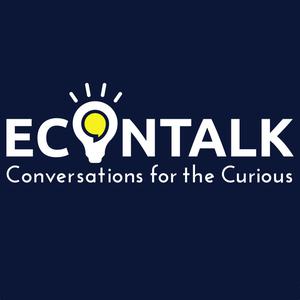 EconTalk
EconTalk
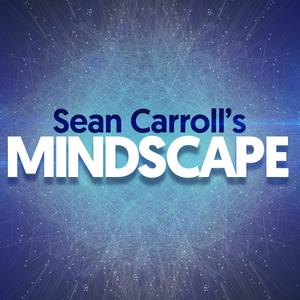 Sean Carroll's Mindscape: Science, Society, Philosophy, Culture, Arts, and Ideas
Sean Carroll's Mindscape: Science, Society, Philosophy, Culture, Arts, and Ideas
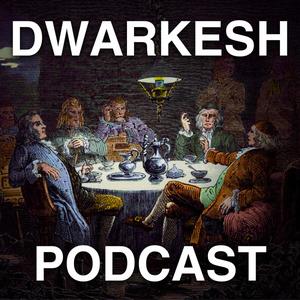 Dwarkesh Podcast
Dwarkesh Podcast
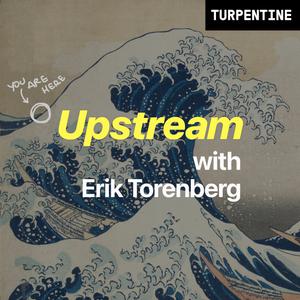 "Upstream" with Erik Torenberg
"Upstream" with Erik Torenberg
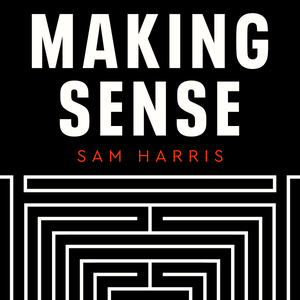 Making Sense with Sam Harris
Making Sense with Sam Harris
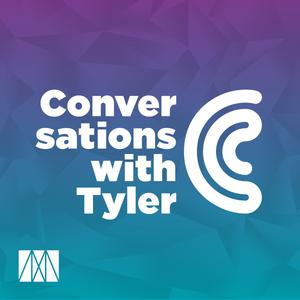 Conversations with Tyler
Conversations with Tyler